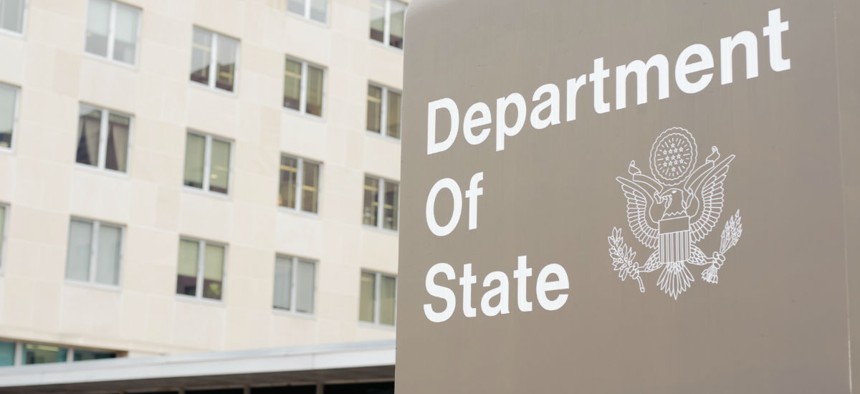Ex-Diplomats Balk at Trump’s Nominee to Lead Foreign Service
Choice of Indiana economic planner Akard would alter past requirement for senior State Dept. experience.
Nearly three weeks after President Trump’s nomination of an Indiana economics official with State Department experience to run the Foreign Service, some big names in the community of retired diplomats are giving him a thumbs-down.
Stephen Akard, an associate of Vice President Mike Pence during his days as Indiana governor, was a chief of staff, vice president and general counsel for the Indiana Economic Development Corp. when, in January 2017, he was brought to Washington as senior adviser in the State Department’s Office of the Under Secretary for Economic Growth. According to the White House’s Oct. 10 announcement of his nomination, Akard was a Foreign Service officer from 1997 to 2005, with assignments in India and Belgium, as well as an executive assistant in the department’s executive secretariat under Secretary of State Colin Powell.
As noted in a Wednesday report by Foreign Policy, the prestigious position—comparable to the chief of staff of a military service—“has always gone to a senior Foreign Service officer who has served as an ambassador and who has decades of experience in the diplomatic corps.” Eight current and former diplomats told Foreign Policy that Akard’s elevation “will further politicize and potentially weaken the country’s ranks of professional diplomats that are already reeling from the Trump administration’s sidelining of Foggy Bottom and Secretary of State Rex Tillerson’s redesign program.”
On Monday, the two leaders of the American Academy of Diplomacy sent a rare letter to the chairman and ranking member of the Senate Foreign Relations Committee asking that Akard’s nomination be rejected. “We have concluded that Mr. Akard lacks the necessary professional background to be the director general of the Foreign Service and director of human resources at the State Department,” wrote retired diplomats Thomas Pickering and Ronald Neumann. “His confirmation would be contrary to Congress’s long-standing intent and desire to create a professional American diplomatic service based on merit.”
The critics expressed regret that their request to meet with Akard was denied. “We hold no personal animus toward him. Indeed, there may be other positions at the State Department for which Mr. Akard might be better qualified,” they wrote to Sens. Bob Corker, R-Tenn., and Ben Cardin, D-Md. But a more urgent consideration is protecting the academy’s mission of promoting an “effective American diplomacy based on a strong Foreign Service and a strong Civil Service,” the letter argued. “He does not have the experience necessary to advise the secretary on the department’s most senior appointments or the management of the 75,000 Foreign Service, civil service, and locally engaged staff employed by the State Department.”
Other critics weighed in through the blog Diplopundit, noting that while no one has specifically defined “senior experience” for tenured diplomats, Akard, “if confirmed by the Senate, would certainly end the interpretation and practice that the director general position be a senior career Foreign Service Officer of distinction.” The 1980 Foreign Service Act, this critic allowed, “does not distinguish between Foreign Service Officers and Foreign Service specialists or make any mention of ranks.” But the law’s “spirit” suggests that the intent was that the director general be a senior Foreign Service Officer, active or retired, but someone who served a full career, to enable him/her to ‘assist’ the Secretary of State in the ‘management of the service,’ ” the critic said. A full career typically would mean service of at least 20 years.
The American Foreign Service Association told Government Executive it generally declines to comment on specific nominees.




